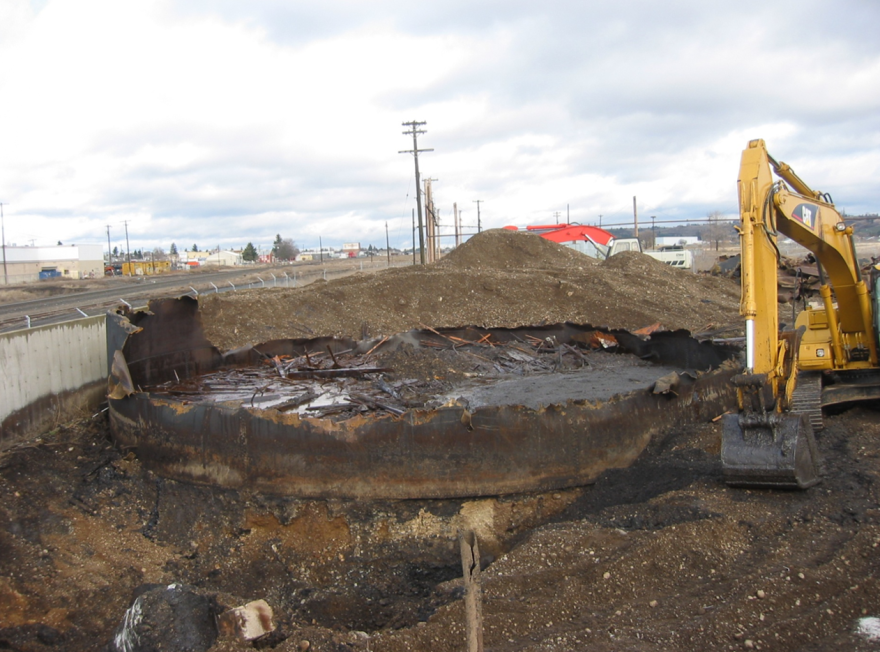Washington state officials are ready to move contaminated soil at a northeast Spokane railroad site. The area is near where the North-South Freeway will eventually be built through Hillyard. State officials say it’s important to get the work done soon.
There are two factors in play here. First, state environmental officials are negotiating with Burlington Northern and Marathon Oil to clean up deep soil contamination in a Hillyard rail yard. That cleanup plan is still a year away from being implemented.
At the same time, state budget writers are anxious for the Department of Transportation to get moving on the next phase of the North-South Freeway, to carry it south to Interstate 90. The path for the freeway runs very near that contaminated area, which brings us to this project.
“We’re doing this as an interim action because the surface soil needs to be cleaned up before construction can start for the freeway. The freeway construction won’t affect the cleanup of the deeper contamination but we do need to get this surface stuff taken care of before it can start,” said Katie Larimer,
a cleanup sites manager for the Department of Ecology.
She says there are five contaminated sites where crews will excavate up to 15 feet of oil-laden soil and replace it with clean fill. The plan is for that work to be done this summer and fall. That would allow the Department of Transportation to stay on track for construction on the next phase of the freeway next year, says regional administrator Mike Gribner.
“Our next project up there that would be directly related to that is actually one where we start to transition the railroad lines to a different place and make room for where the new facility is going to go," Gribner said.
The Department of Ecology opened a 30-day public comment period on Monday.


